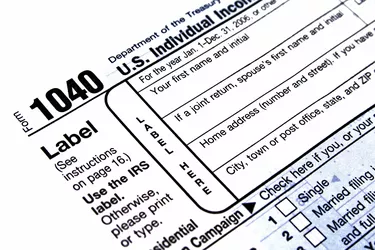
According to the Internal Revenue Service, income from odd jobs is taxable whether you receive payment by cash, check or bartered goods and services. Examples of taxable work include babysitting, handyman services or work after hours as an independent contractor in your regular trade, such as plumbing. File odd-job earnings as self-employment income on your federal tax return.
Who Must File Federal Taxes
Video of the Day
If you earn more than $400 from odd jobs, you have to file a federal tax return even if you don't have any other income. However, workers who earn less than $400 in side income don't have to file taxes if they fall below a designated total income threshold. This threshold varies with your age and filing status -- such as married, head of household or single. For single taxpayers under 65, the threshold for having to file a return is $10,150. All dollar amounts are current for the 2014 tax year and subject to changes in the law.
Video of the Day
Earnings to Report
It's a common misunderstanding that you have to have at least $600 in income from any one client for self-employment pay to be taxable, according to the IRS. This isn't true. If you meet the income threshold to file a return, every dollar amount from odd jobs is taxable, no matter how small. You may receive a Form 1099-MISC from some clients, but pay from clients who don't send the form is also subject to taxes.
Reporting Side Income
Keep careful records throughout the tax year so you can file accurately and deduct any expenses. Report income from side jobs on Schedule C or Schedule C-EZ of Form 1040. For example, if you're using Schedule C-EZ, report gross receipts on line 1, expenses on line 2 and your net profit on line 3. Enter your net profit from Schedule C or C-EZ on line 12 of form 1040.
Self-Employment Tax Basics
If you earn $400 or more in net self-employment income, you must also pay self-employment tax. This takes the place of the Social Security and Medicare taxes that most employers withhold from paychecks. Even if you're already receiving Medicare or Social Security, you still must pay these taxes. Compute this tax on Form 1040 SE, and file the form with your income taxes. If you have a large self-employment income and no tax withholding, you may have to pay quarterly estimated taxes to avoid penalties.